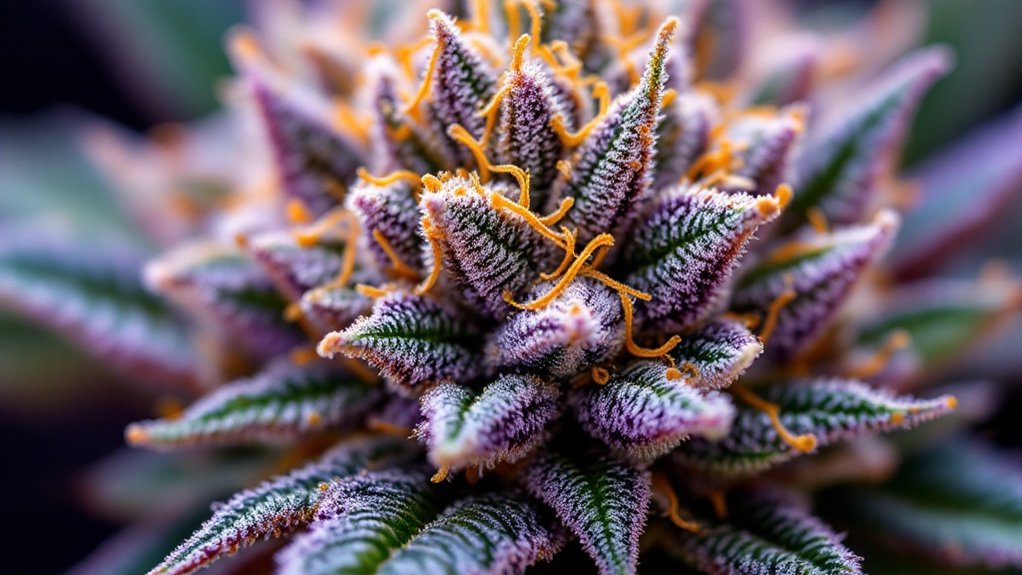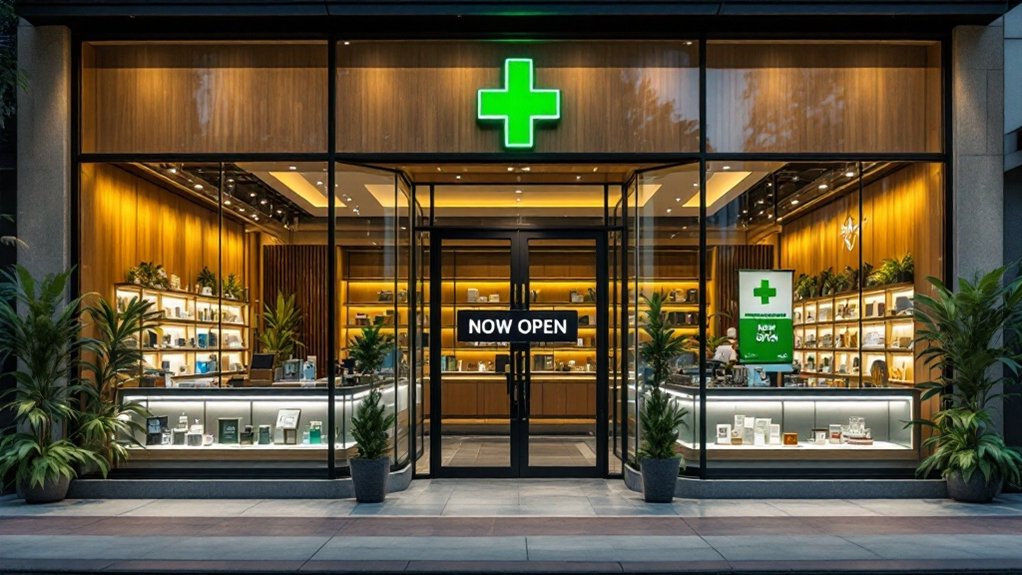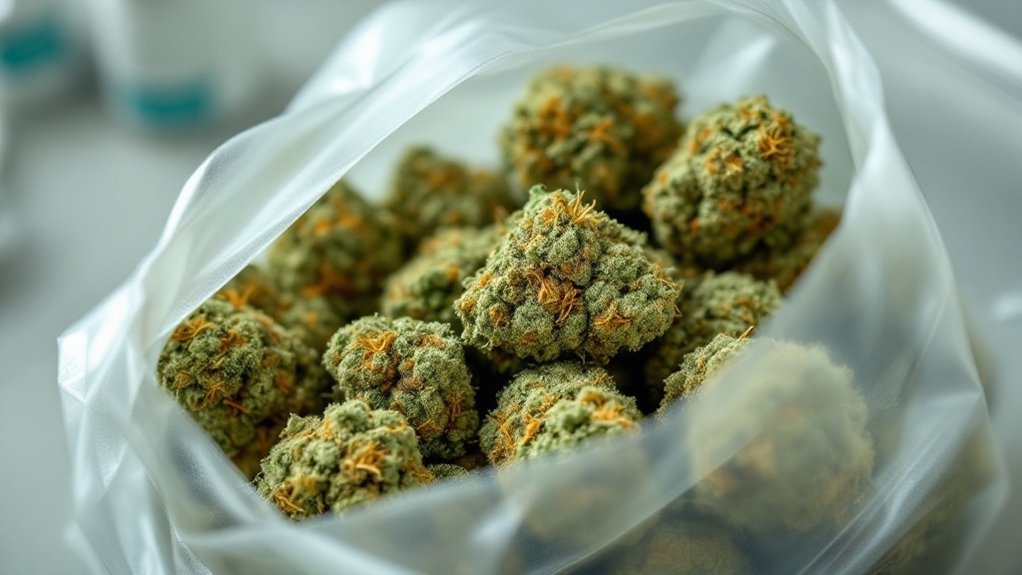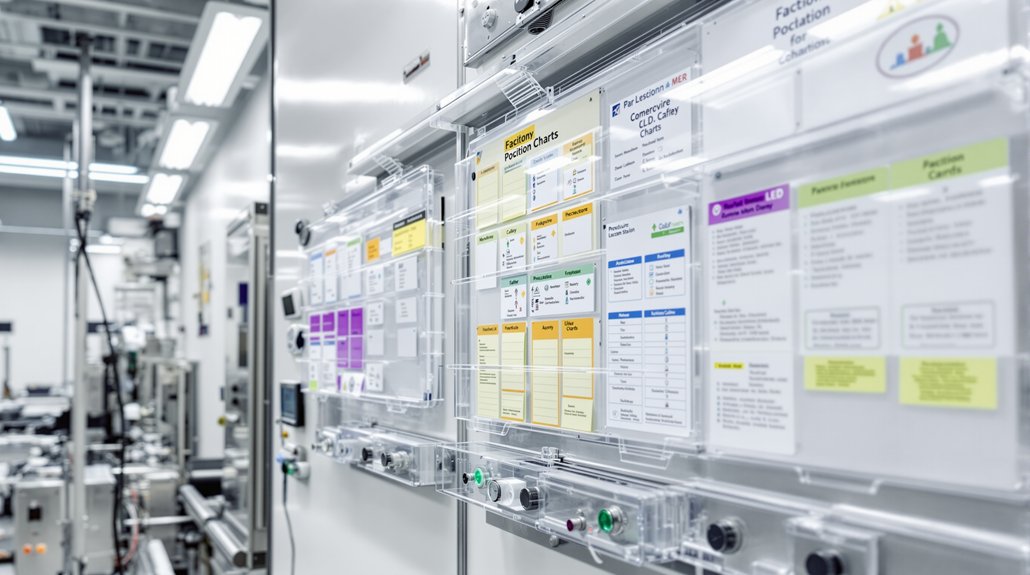Premium cannabis strains earn their exotic status through distinctive characteristics that separate them from standard varieties. These include vibrant coloration with deep greens or purples, abundant crystalline trichome coverage, and complex aromatic profiles created by high terpene concentrations (often exceeding 3%). Exceptional genetics contribute to potency levels that frequently surpass 30% THC, while proper cultivation techniques guarantee clean, smooth smoke that burns to white ash. The limited availability of these meticulously grown, small-batch products further enhances their prestigious reputation among connoisseurs.
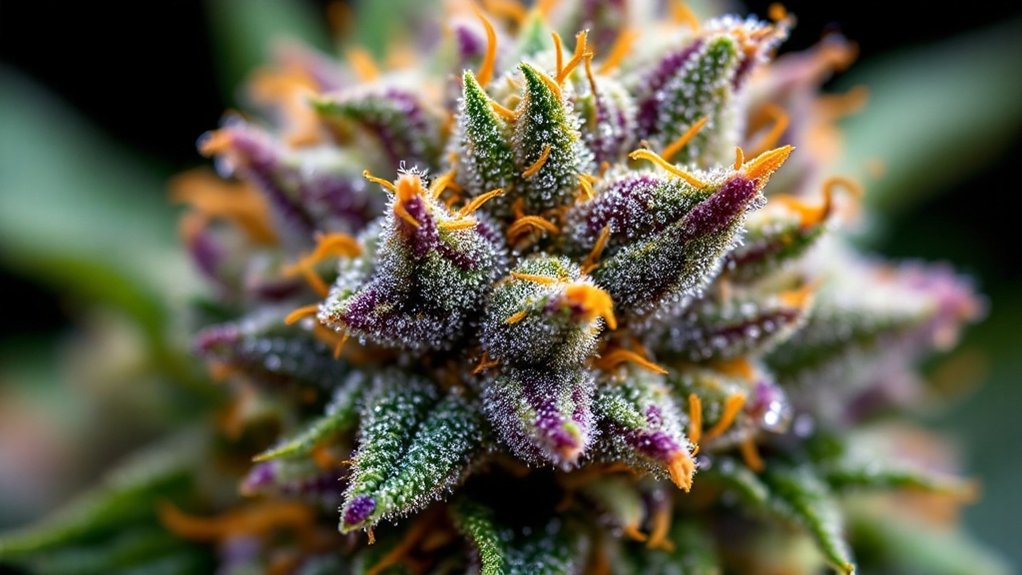
Connoisseurs and cultivators alike recognize that premium cannabis strains possess distinctive qualities that separate them from average varieties. These exotic strains represent the pinnacle of cannabis breeding and cultivation, characterized by exceptional genetics that have been selectively developed through multiple generations. The genetic lineage directly influences the plant’s potency, flavor profile, aromatic qualities, and visual appeal, creating consistency in phenotypes that experienced users immediately recognize.
The visual characteristics of premium cannabis provide immediate indicators of quality. Truly exotic strains display vibrant coloration ranging from deep emerald greens to rich purples and striking orange hues. What distinguishes these high-end flowers most prominently is their abundant trichome coverage, creating a crystalline appearance that resembles a coating of frost or fine sugar. These resin glands contain the highest concentrations of cannabinoids and terpenes, contributing to both potency and sensory experience. In fact, the average THC content in cannabis flower currently ranges from 10% to 30%, demonstrating the potential for premium strains to exceed these levels significantly.
Aroma serves as another definitive marker of exotic cannabis. Premium strains produce complex, layered scent profiles detectable even before the flower is broken apart. These olfactory signatures result from rich terpene concentrations and can range from fruity and sweet to earthy, spicy, or diesel-like. The absence of hay-like or ammonia scents indicates proper curing techniques have preserved these volatile compounds.
The flavor experience of exotic cannabis mirrors its aromatic profile, offering pronounced tastes that linger on the palate. Clean, smooth smoke that burns to white ash indicates proper cultivation practices, particularly the final flushing phase that removes residual nutrients. This attention to cultivation detail distinguishes boutique growers who prioritize quality over yield. The highest quality strains often feature terpene content percentages above 3%, which directly correlates with their premium market pricing.
Potency metrics often excel in premium varieties, with many exotic strains containing elevated THC percentages alongside balanced minor cannabinoid profiles. However, the true hallmark of exotic cannabis is its cultivation process, featuring rigorous environmental controls and hand-trimming practices. Small-batch production allows for meticulous quality oversight throughout the growth cycle and post-harvest processing. Some of the most sought-after varieties include Ghost Train Haze and Wedding Cake, known for their impressive THC content exceeding 20%.
Market forces further define exotic status through scarcity and reputation. Limited availability results from restricted genetic access or challenging cultivation requirements. These factors combine with industry recognition and awards to cement certain strains’ positions as truly premium offerings.
For enthusiasts seeking the highest quality experience, these distinctive characteristics collectively define what makes cannabis truly exotic.
Frequently Asked Questions
How Much More Expensive Is Exotic Weed Than Regular Cannabis?
Exotic cannabis typically costs 30% to 100% more than regular strains due to several market factors.
An eighth (3.5g) of exotic weed ranges from $50 to $80, compared to $30 to $40 for standard varieties, with premium exotics reaching $100+ in select dispensaries.
This price disparity stems from unique genetics, limited production runs, exceptional potency (15-32% THC), specialized cultivation processes, and enhanced terpene profiles.
Regional markets, regulatory conditions, and supply limitations further influence these price differentials.
Are Exotic Strains Legal in States With Recreational Cannabis Laws?
Exotic cannabis strains are legal in all twenty-four states and Washington, D.C. that have legalized recreational cannabis.
These jurisdictions make no legal distinction between exotic and conventional strains, subjecting both to identical regulations governing cultivation, possession, and sales.
All cannabis products, including exotic varieties, must adhere to state-specific requirements for testing, labeling, potency limits, and age restrictions.
However, federal law still classifies all cannabis with >0.3% THC as illegal, regardless of strain uniqueness.
Can Exotic Cannabis Have Adverse Health Effects?
Exotic cannabis strains can indeed produce significant adverse health effects due to their elevated THC concentrations, often exceeding 30%.
These potent varieties may trigger temporary psychotic episodes, especially in genetically predisposed individuals. The high THC content can impair cognitive function, affecting memory, perception, and coordination.
Additionally, exotic cannabis consumption has been associated with increased risks of anxiety, paranoia, and cardiovascular strain.
Long-term use of high-potency strains may lead to persistent cognitive deficits, particularly in adolescent users.
How Do Dispensaries Verify Authenticity of Exotic Cannabis Strains?
Dispensaries verify exotic cannabis strain authenticity through multiple methods. Genetic testing identifies inconsistencies by comparing DNA profiles across samples, ensuring genetic congruence between products with identical names.
Point-of-sale systems with specialized inventory tracking maintain strain integrity throughout the supply chain. Digital authentication platforms like WeedMaps (95% effective) help locate verified dispensaries.
Visual authentication markers, including regulatory compliance indicators displayed on storefronts, provide additional verification for consumers seeking premium strains.
Do Exotic Cannabis Strains Produce Different Drug Test Results?
Exotic cannabis strains may indeed produce different drug test results due to their unique cannabinoid profiles.
The novel cannabinoids found in exotic varieties, such as THCP, HHC, and Delta-8, possess distinct molecular structures that standard drug tests might not be calibrated to detect consistently.
Additionally, the higher potency often found in exotic strains could potentially extend detection timeframes in biological samples.
Current testing technologies have limitations in differentiating between these exotic cannabinoid variants and traditional Delta-9 THC metabolites.
